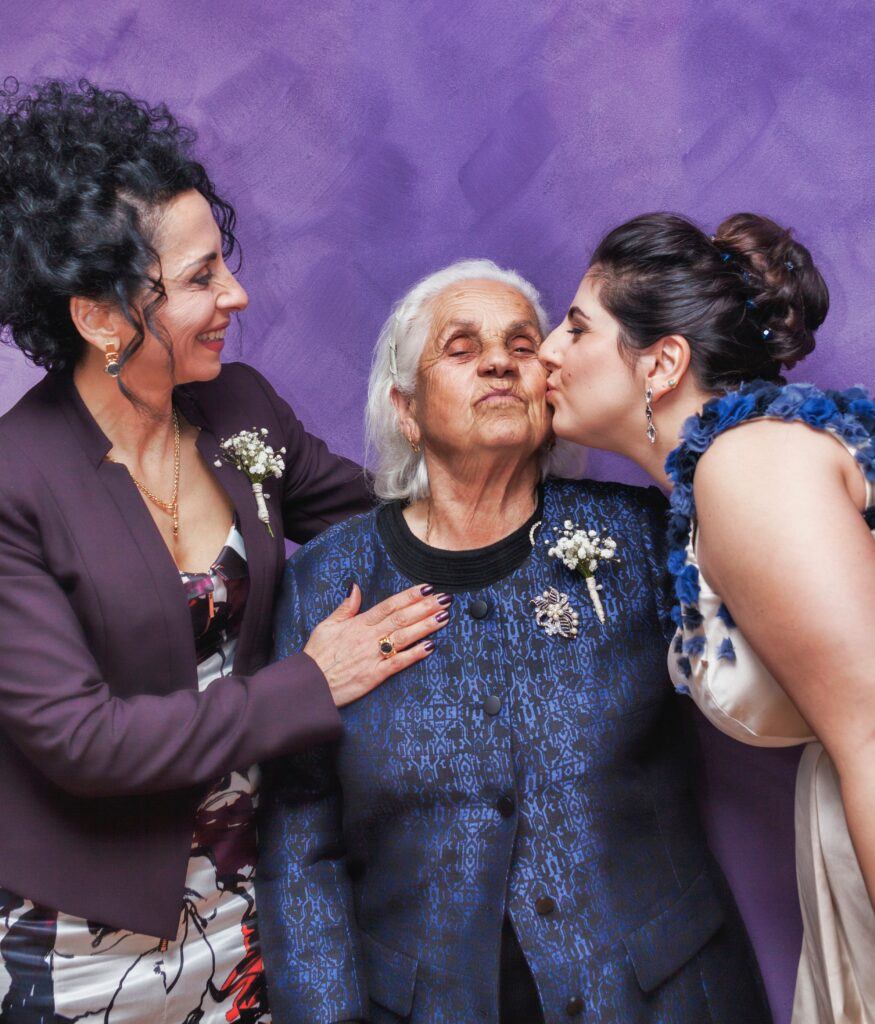In many countries around the world, it is normal children to remain with their parents into adulthood. In the United States, however, a shared living with parents is a much less common living arrangement for adult children. Here, it is the expectation is for the children to move out of their parent’s homes when they become adults.
Despite this, members of generation Y and Z in the United States are increasingly continuing to reside with their parents. As shared living arrangements between parents and their adult children becomes more common, it is a good idea for people in the United States to start exploring how such shared living arrangements between parents and adult children can actually be successful and beneficial.
Shared living arrangements between parents and their adult children are actually a great opportunity for both parties to develop reciprocal and respectful relationships with each other. If successful, their relationship as adults might even be more successful than their earlier relationship, when the children were not yet adults.

Shared Living with Parents or Adult Children – Ignore Stereotypes
Even though it is becoming more common in the United States for adult children to live with their parents into adulthood, a stigma persists with such living arrangement. For instance, it is often assumed that the adult children living with their parents are not contributing towards household chores. It is often also assumed that they are not paying any rent, utilities, or services. In short, there seems to be a view by people in the United States that the adult children sharing a residence with their parents do not provide any support to their parents.
On the other hand, it is often assumed that, in shared living arrangements between parents and children, it is the parents who provide all of the support in the relationship. And it is often assumed that the relationship between parents and their adult children is tumultuous.
Of course, these assumptions of shared living with parents or adult children are stereotypes and not always true.
There are, in fact, children who are very responsible from an early age and who are very helpful to and supportive of their parents. There are also many parents who have a great and healthy relationship with their children.
For sure, no family is without obstacles. But obstacles are not necessarily an impediment to long term shared living with parents or adult children. In fact, families who successfully overcome obstacles together can develop stronger relationships as a result.
So long as the parents and adult children have learned to live harmoniously, a shared living arrangement between adult children and parents can make a lot of sense.
You might be interested in: Benefits of Being a Single Woman

Shared Living with Parents or Adult Children – Adopt Healthy Expectations
Many times, our beliefs affect how we interpret the world, our actions, and ultimately, our reality.
If adult children hear the stereotype that children take advantage of their parents, they might think it is okay for them to take advantage of their parents. Likewise, if parents believe that having their child at home above a certain age is a sign of failed parenthood, regardless of how responsible the adult child is, this would be an unfair judgement for both the adult child and the parent.
Thus, instead of framing shared living with parents or adult children in such an unnecessarily negative light, we should start talking about the positive ways that both parents and their adult children can benefit from multi-generational living. In this way, both parents and children would start developing an interest in the possibilities that could arise from such an arrangement.
The awareness that a multi-generational living arrangement can be successful might spur families to start actively planning how to make a shared living arrangement between parents and adult children work. In other words, the expectations of shared living arrangement between adult children and their parents would shift to more positive ones.
As a result, adult children will be able to reap the benefits of shared living with parents, and parents of shared living with adult children, rather than see it in the negative way that society in the United States currently paints it.

Shared Living with Parents or Adult Children – Mutual Support
So long as adult children have a harmonious relationship with their parents, the benefits of shared living with parents are many.
For example, a benefit of living with one’s parents as an adult is that, if the parents are retired, the parents will have some spare time in their hands. Therefore, they might be able to cook some meals, take care of a pet, or do laundry.
On the other hand, parents might benefit from living with adult children if their children provide assistance with household chores. Such chores might include mowing the grass, shoveling the snow, or going grocery shopping. Adult children can also help their parents stay up to date with technology and help them run important errands.
Apart from the discrete support parents and their adult children can provide each other, they can also provide each other with social and emotional support. Hopefully they will have each other’s bests interest at heart, and will help each other through difficult times–such as during illness. Worth noting is that, because of their shared living arrangements with each other, both parents and adult children will likely be less prone to feelings of isolation and depression.
You might be interested in: Safety Risks in Hospitals
Of course, in order for the relationship to be harmonious, both parents and adult children need to have serious conversations as to what they will be able to contribute to the well-being of relationship. The agreement could be taking turns doing each task. Or it could it involve each particular member being in charge of one particular task.
The contributions of each family member could be either monetary, providing services, or, preferably, both. These should be distributed in a fair manner, so that no one person feels overburdened. Furthermore, the contributions be divided in such a manner that take into account each individuals abilities and constraints.

Shared Living with Parents or Adult Children – Respect is Key
Respect is fundamental to any healthy relationship. It can make relationships work even between people who are quite different from each other.
Regardless of whether two people have different ways of thinking, different personalities, or different skills or interest, if the individuals are respectful of one another, the relationship can be successful.
Their differences might actually complement each other’s abilities. Therefore, working with each other they can help them accomplish more than they would have been able to accomplish on their own.
You might be interested in: Personal Health Record Benefits – Take Charge
The same holds true in shared living with parents or adult children. It might be that parents and their adult children do not have much in common. However, this does not mean that the relationship cannot thrive.
While it might take some work and patients, parents and their adult children can become more understanding of each other. They might actually learn that they in fact have a number of things in common.

Shared Living with Parents – It Takes Effort!
Just as with any other relationship, to successfully live with your parents as an adult, or to successfully live with your adult child as parents, you will need to put in the necessary work to make a relationship work.
This, of course, takes deliberate effort.
Some practices that would be wise to incorporate into a shared living relationship are:
- Practice good communication skills. Listen to each other’s concerns and needs and do your best to respect them.
- Use humor in your day to day lives. The humor that you that you should use is the type that is playful and harmless — not the one that is mean spirited or sarcastic.
- Get into the habit of speaking to each other respectfully. Never insult each other.
- Be thankful for each other’s contributions. Realize how lucky you are to live with a group of individuals who have each other’s back.
- Don’t criticize each other’s work. Focus on the quality of your own work as inspiration is a better motivator than criticism.
- Apologize if you make a mistake. Also, learn from your mistake.
- Respect each other’s privacy. Neither parents nor their adult children should be overly involved in each other’s lives. Let family members share as they’d like. Concentrate on your own life.
When each individual put in the effort to maintain a health shared living relationship, the shared living arrangement between adult children and their parents can thrive.

When Should Children Move Out? – When Should Parents Move Out?
While the concept of parents and adult children living together is a great one, there are cases when it is, in fact, better to part ways. This is particularly the case when either of the two parties has habits that are detrimental to either relationship and is not able or willing to change to make the shared living arrangement work. It is also true if either the parent or the adult child is abusive in any way – whether physically or emotionally.
For example, if someone has a drinking problem, or a problem with drug abuse, that could definitely lead to relationship problems. Also, if someone does not respect the needs of others, or does not keep their agreement of how they will contribute to the family, this will lead to relationship trouble.
You might be interested in: How to Avoid Drinking Alcohol
It is not healthy for anyone, even family members, to remain together if the relationship is toxic. The goal of living together is to make live more comfortably and make each other’s lives better, not harder. If the opposite is true, it is definitely time to seek distance.
Hopefully those with the bad behaviors will change. However, your own well-being should ultimately be your number one priority.
Conclusion
While in the United States, it is viewed positively when children should move out of their homes as soon as they reach adulthood, there are many benefits of shared living with parents, as an adult, or shared living with adult children, as a parent. As this arrangement becomes more and more common, people in the United States should start looking at the benefits of this living arrangement.
When adult children practice shared living with parents, or when parents practice shared living with adult children, it does not mean that parents and adult children are not independent. In fact, each individual in the living arrangement can be quite self-sufficient.
However, shared living with parents or adult children teaches individuals in the living arrangement to be interdependent with each other. The result of such teamwork is often better and more long-lasting than things that can be accomplished if the individuals were living in isolation. Thus, learning to share a living with other adults can actually be an important life skill.
Shared living with parents or adult children is particularly beneficial as it allows the parents and adult children to develop a supportive, mutually beneficial relationship as adults. Furthermore, it avoids issues that come with isolation or living with individuals who may not be as supportive as one’s own family members.
If you have the opportunity to practice a shared living arrangement with your parents or with your adult children, do not dismiss it due to stereotypes. Instead, be optimistic about the possibility. You will need to agree to support each other and treat each other respectfully. And each individual should be committed to put in the effort to make the shared living arrangement work.
In the end, all will benefit from the supporting living arrangement and the opportunity to create memories together while at the same time cultivating their own individual goals.
You might be interested in: Maltese Personality Traits — Their Lessons to Me

